The Rising Acceptance In The U.S. Of A Federal Law-Challenging Sheriffs Group
In the bustling backdrop of the convention center, Dar Leaf took a moment to articulate the profound purpose of America’s sheriffs. Despite the friendly expression in his bright blue eyes and warm smile, the depth of his conviction was evident.
Leaf, the chief law enforcement officer for Barry County, Michigan, conveyed the sacred mission of sheriffs during a break at the National Sheriffs’ Association 2023 conference in June.
He stressed, “The sheriff is meant to safeguard the public from evil. When the government strays into malevolence or oversteps its boundaries, the sheriff stands as a guardian against that.”
Core Beliefs
A member of the advisory board of the Constitutional Sheriffs and Peace Officers Association (CSPOA), founded in 2011 by former Arizona sheriff Richard Mack, Leaf elaborated on the CSPOA’s core beliefs.
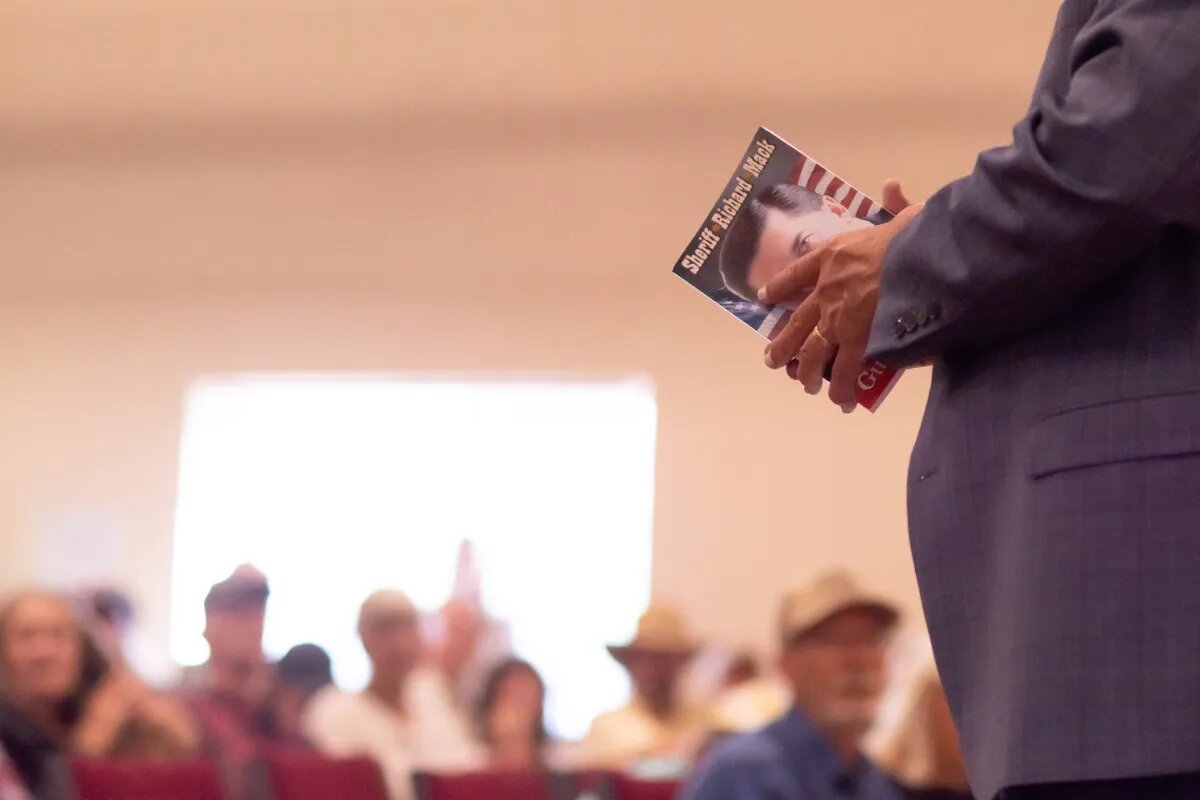
Source: azcir.org
The association teaches that elected sheriffs should resist enforcing laws they deem unconstitutional or unjust, viewing their role as protecting citizens from an overreaching federal government.
Unjust Laws
In an interview, Mack emphasized that the most secure way to achieve this is for local law enforcement to recognize they are under no obligation to enforce such laws. He asserted that laws deemed unjust are, in fact, tyrannical.
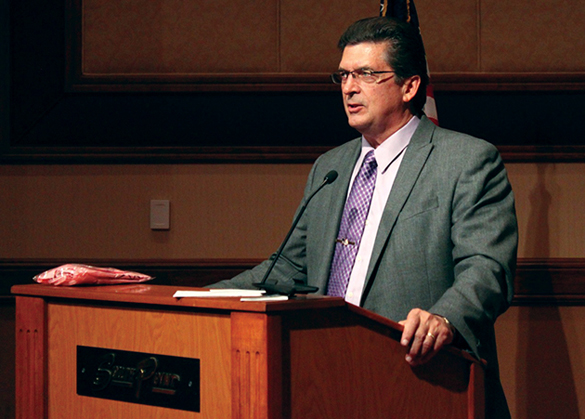
Source: splcenter.org
The CSPOA has voiced opposition to gun control, COVID-19 mask mandates, public health restrictions, and alleged election fraud.
Mainstream Recognition
While the group has quietly expanded its influence nationwide, it has also aimed for mainstream recognition by securing state endorsement for publicly funded law enforcement training, revealed the Howard Center for Investigative Journalism after a seven-month investigation in collaboration with the Arizona Center for Investigative Reporting.
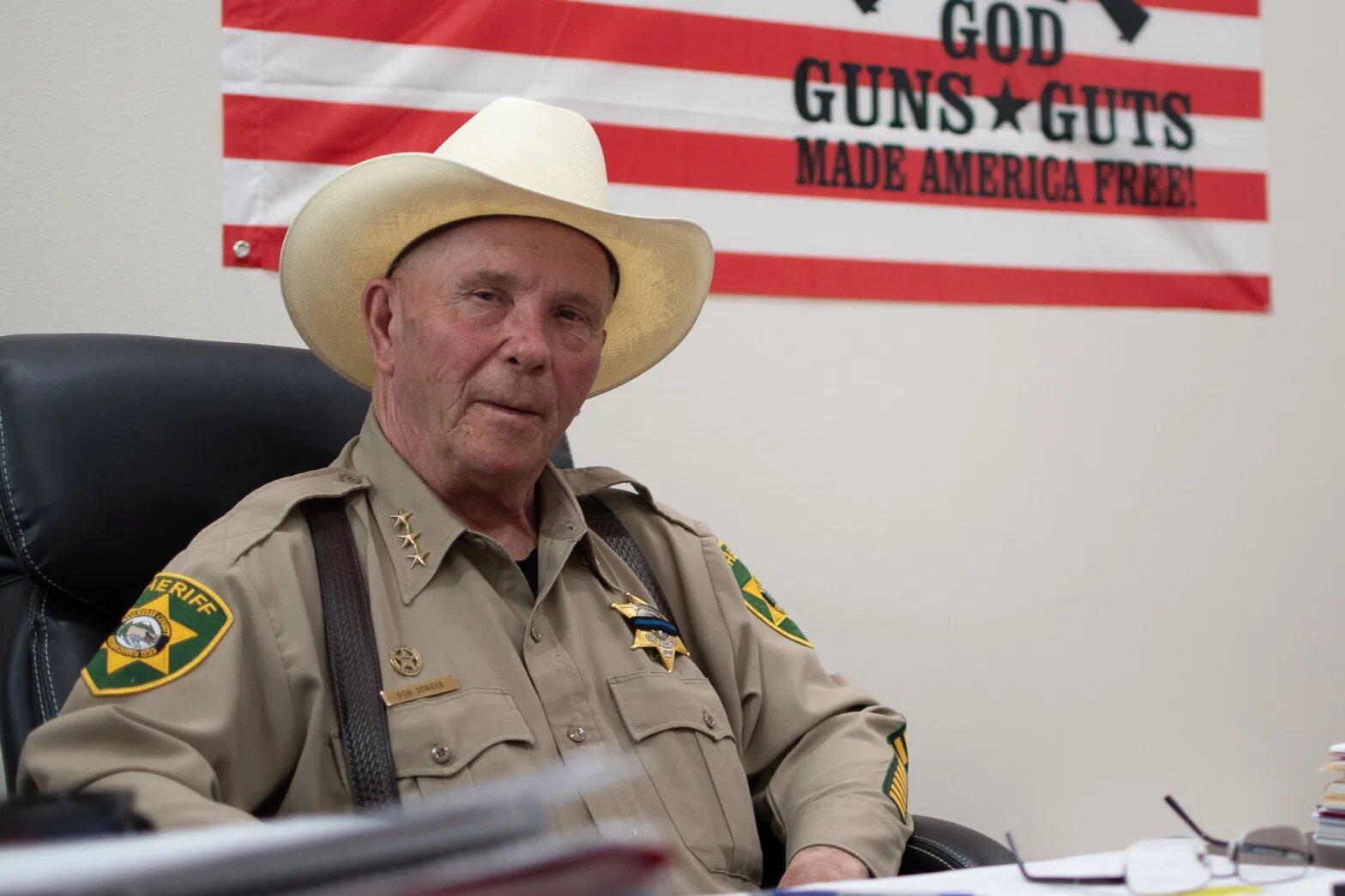
Source: Isaac Stone Simonelli / AZCIR
Over the past five years, the CSPOA has organized events such as trainings, rallies, speeches, and meetings across around 30 states, involving law enforcement officers, political figures, private organizations, and the general public.
Conducting Formal Trainings
Within these efforts, the group has conducted formal trainings based on its “constitutional” curriculum in at least 13 states. In six states, the trainings even earned officers continuing education credits.
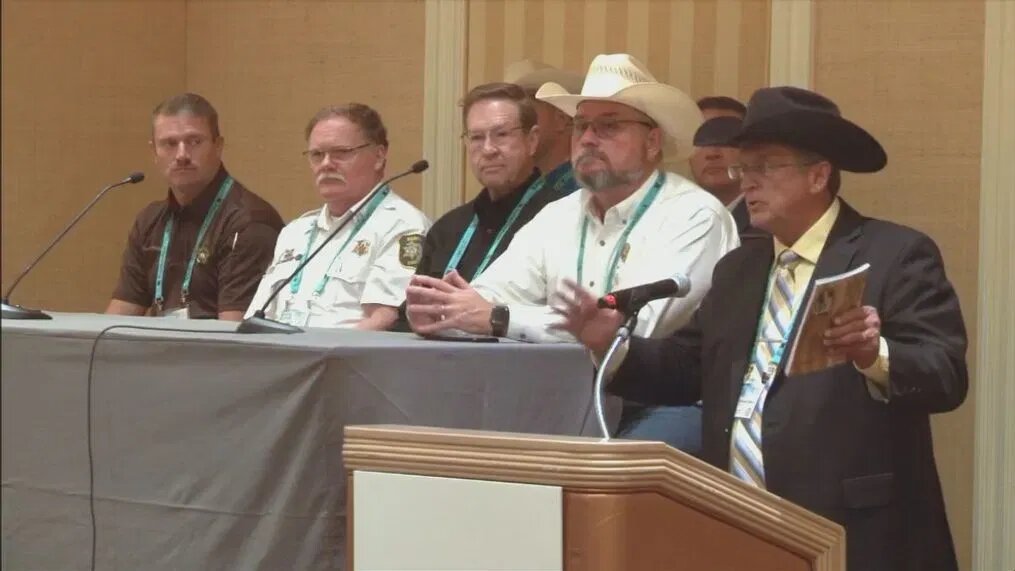
Source: SBG Photo
Notably, the CSPOA has garnered support from individuals who serve on three state boards responsible for setting law enforcement training standards.
Mary McCord's Concerns
Legal experts caution against such training, particularly when it attains state approval, as it can undermine democratic processes outlined in the U.S. Constitution.
Mary McCord, a former federal prosecutor and executive director of the Institute for Constitutional Advocacy and Protection at Georgetown University, warned against what she referred to as a “broader insurrectionist ideology” gripping the nation since the 2020 presidential election.
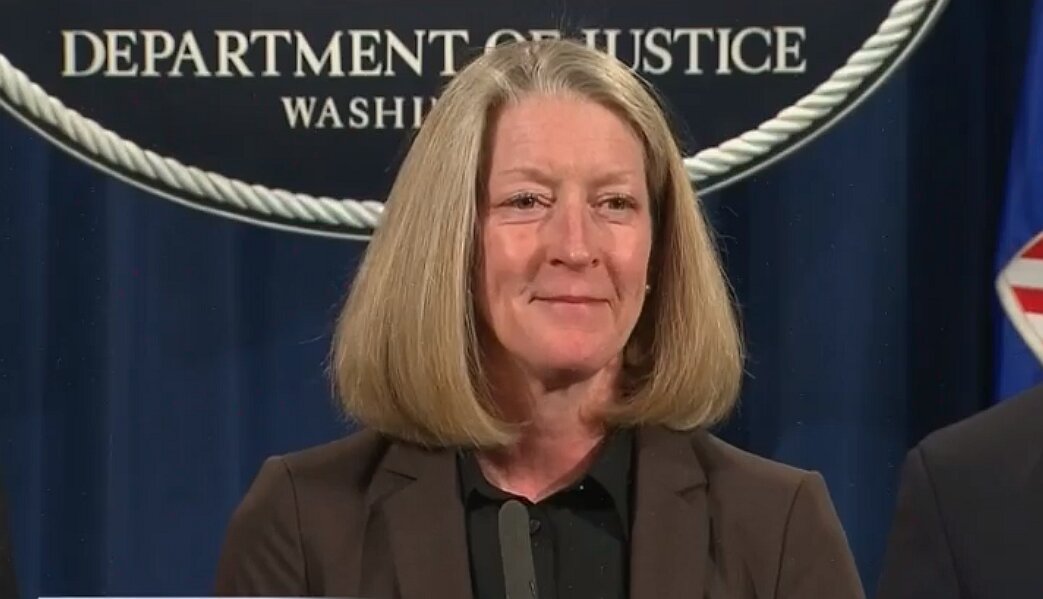
Source: Wikipedia
McCord noted that sheriffs lack the authority to determine constitutionality, as that power belongs to the courts. She raised concerns about a potential inclination towards political violence encouraged by the CSPOA’s teachings.
CSPOA Curriculum
While Texas withdrew state credit for the CSPOA training due to its perceived political content, other states, like Tennessee, endorsed the training since it was hosted by local law enforcement.
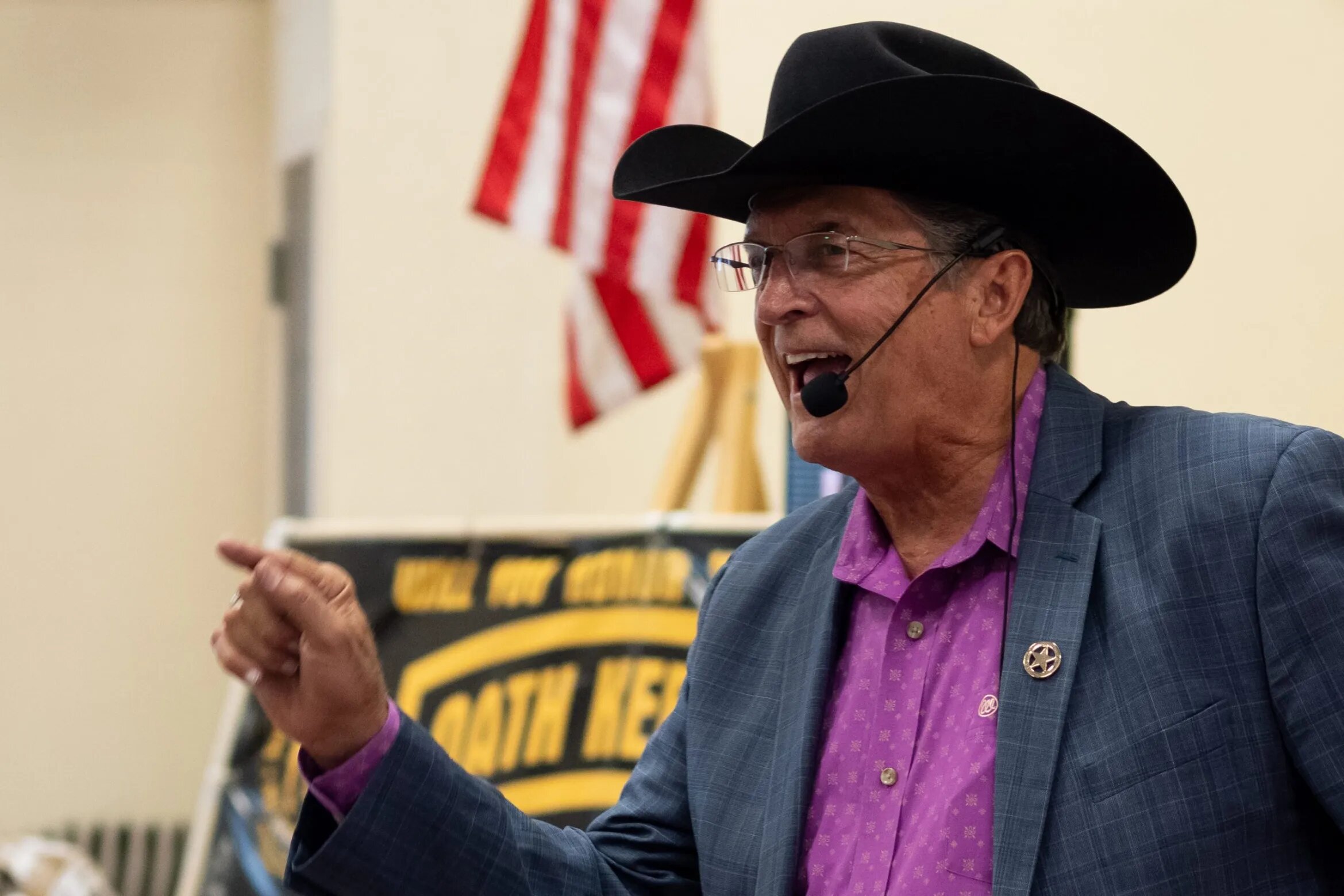
Source: Isaac Stone Simonelli/ AZCIR
Unlike typical law enforcement continuing education, the CSPOA curriculum primarily focuses on the alleged constitutional basis for sheriffs’ absolute authority to interpret and refuse to enforce specific laws.
Their Influence Reaches Far And Wide
The CSPOA’s influence has reached around 69 sheriffs across the United States, with some publicly supporting the group’s ideology. A 2021 survey conducted with the cooperation of academic researchers and the nonprofit Marshall Project revealed that over 200 of approximately 500 surveyed sheriffs aligned with the CSPOA’s ideals.
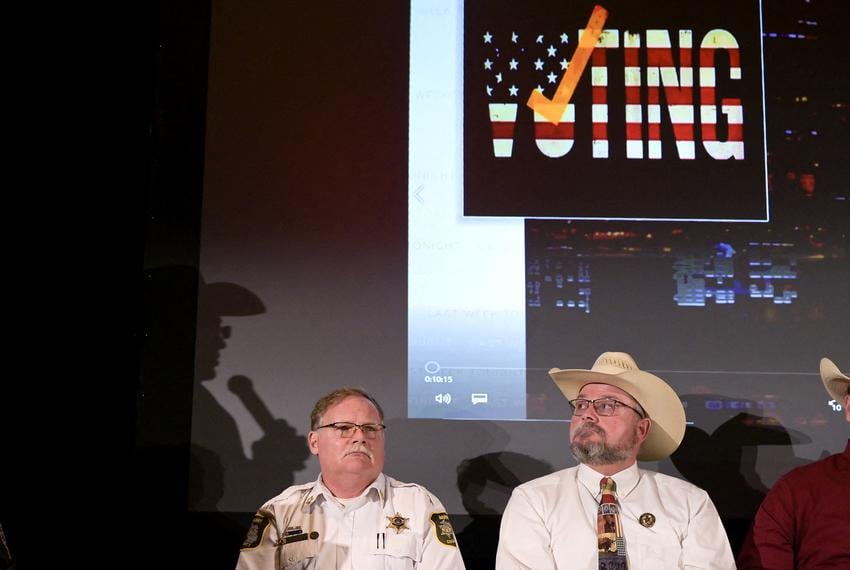
Source: Alamy
Moreover, numerous counties influenced by the CSPOA have contemplated resolutions asserting county-level adherence to the Constitution.
Many Sheriff's Don't Align With The CSPOA's Ideologies
In certain cases, these resolutions empower local officials, including sheriffs, to reject enforcement of laws deemed unconstitutional. Notably, two Nevada counties, Lander and Elko, have formally become CSPOA “constitutional counties,” requiring a $2,500 fee to the sheriffs’ group.
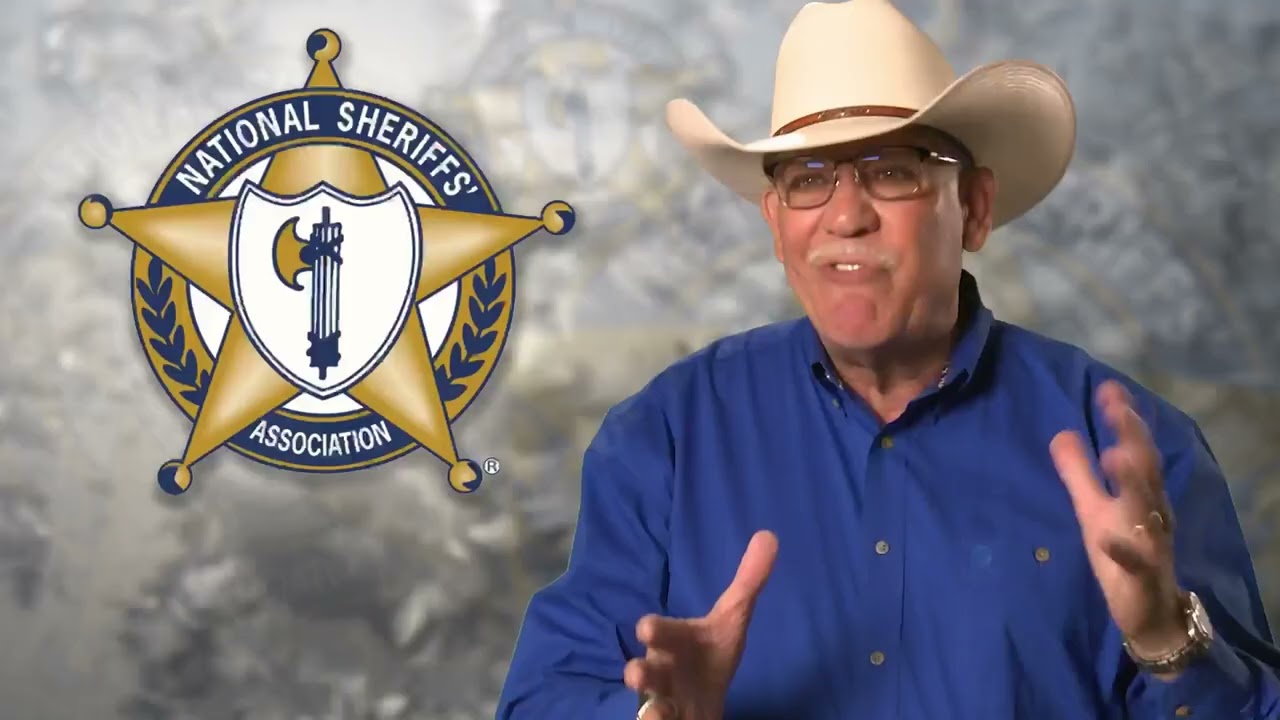
Source: nsaconference.org
While some states oppose the CSPOA’s training endeavors, not all sheriffs subscribe to its ideology. Many attendees at the National Sheriffs’ Association conference distanced themselves from the constitutional sheriffs or claimed ignorance about their goals.
Sheriff Bob Songer
Troy Wellman, sheriff of Moody County, South Dakota, and a vice president of the National Sheriffs’ Association emphasized his commitment to upholding the Constitution rather than overstepping it.
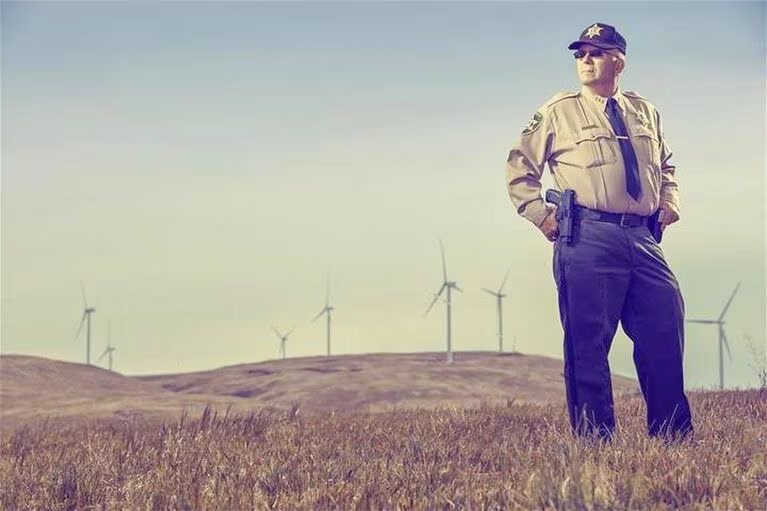
Source: Klickitat County Sheriff's Office
However, “constitutional sheriffs” in some counties have faced public opposition. For instance, Sheriff Bob Songer of Klickitat County, Washington, a board member of the CSPOA, has been accused of fearmongering and intimidation by residents.
Despite these claims, the state’s law enforcement standards agency dismissed a formal complaint against Songer in 2022.
The CSPOA Operates Privately
While the CSPOA’s public image is built around American patriotism and civil rights advocacy, its operational details remain largely undisclosed.
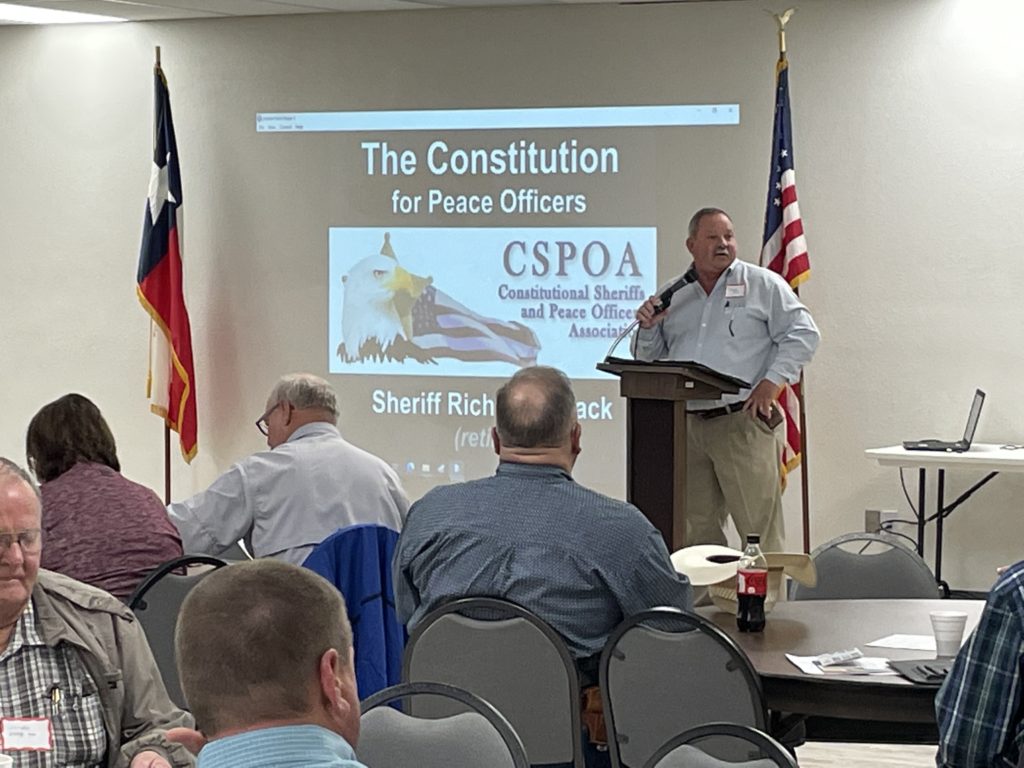
Source: Brownwood News
Its financial activities are shielded from public scrutiny, and although initially registered as a nonprofit in Arizona, it now appears to operate as a private company.
Extremist Causes
The group’s leaders, though, have sympathized with right-wing and white-nationalist extremist causes.
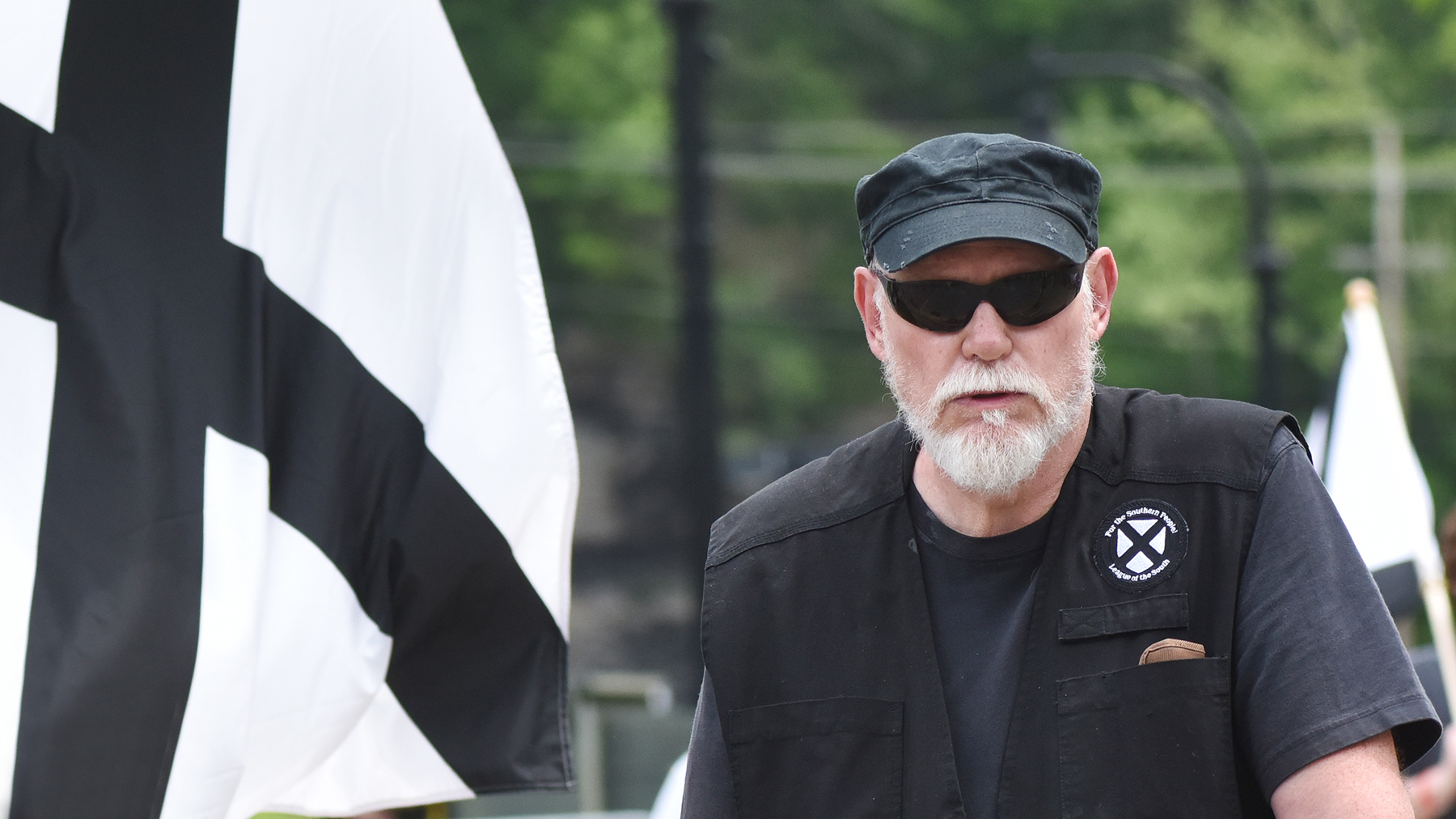
Source: integrityfirstforamerica.org
Richard Mack, a founder of the group, was once associated with the Oath Keepers, a group involved in the January 6 attack on the U.S. Capitol. Similarly, Michael Peroutka, another board member, was linked to the League of the South, which supports a “free and independent Southern republic.”
"Insidious"
Despite its more concealed approach, the CSPOA has been described as “insidious” by experts. Its efforts are believed to be going toward a broader acceptance of extremist ideas.
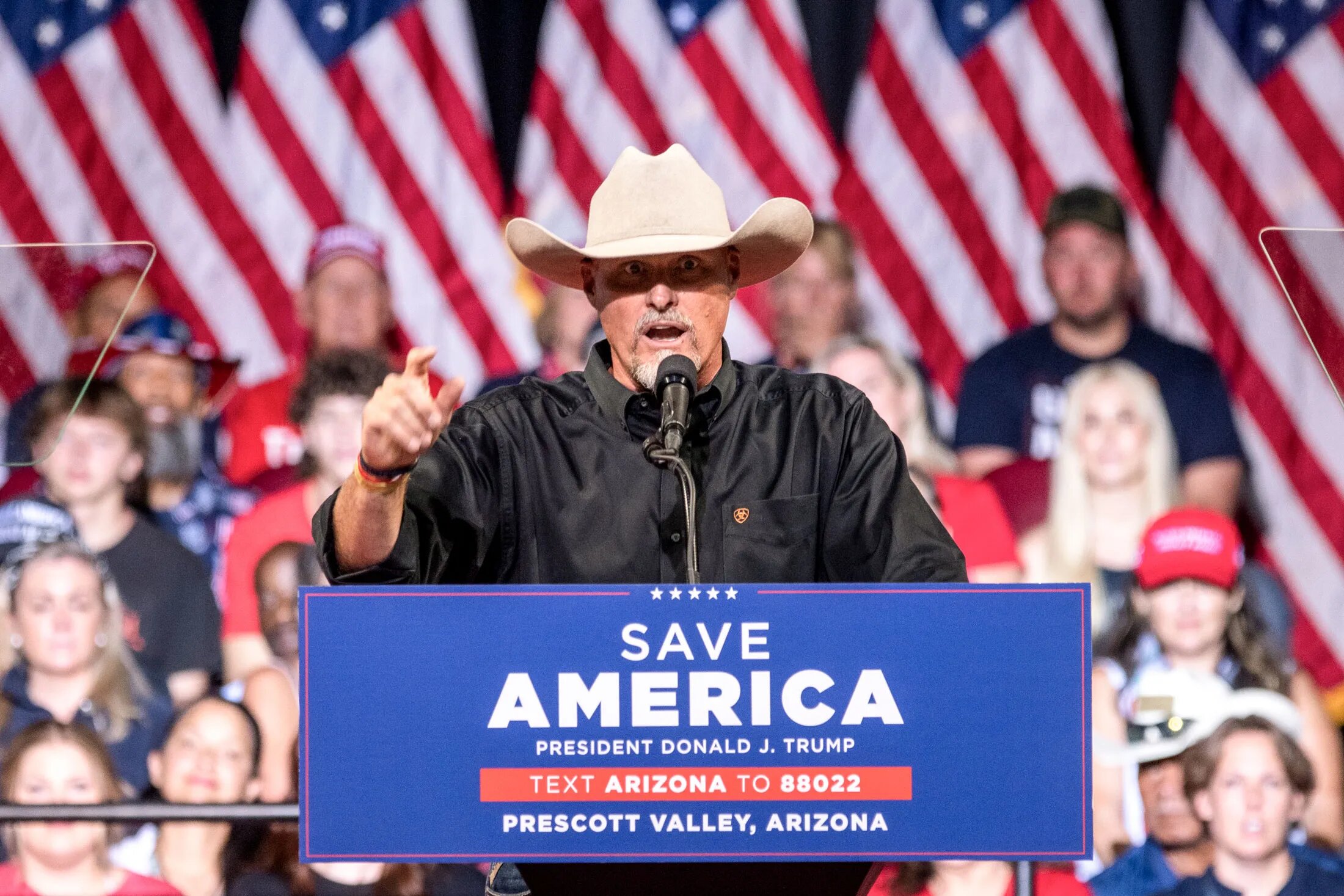
Source: Isaac Stone Simonelli/ AZCIR
In the words of Jon Lewis, a research fellow at George Washington University’s Program on Extremism, “Just because it’s not as overt in their subversion of the democratic system, just because it’s quieter about how it does it and what it’s calling for, doesn’t make the ideas any less dangerous.”
